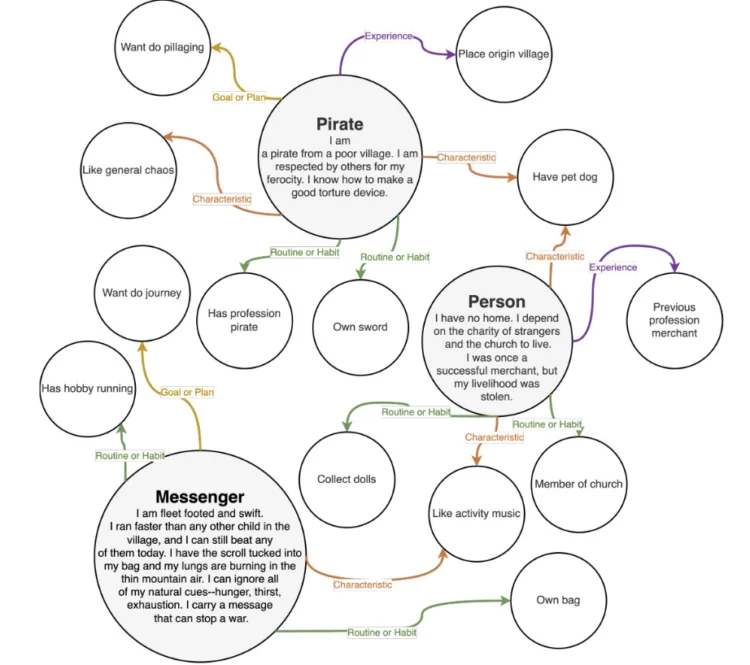Sony researchers have developed An artificial intelligence (AI) system that can transform dialogue fragments into fantasy personas” that may be implemented as non-player characters (NPC) in video games and other media.

AI personas are characteristics or personas that AI models, including large language models, adopt. Training and refining a natural language model via a combination of labor-intensive human feedback and parameter adjustment is the typical procedure for developing an AI persona.
In its most recent endeavors, Sony has implemented automation by training an artificial intelligence model to discern significant details from dialogue.
As per the team’s paper, the overarching objective of the endeavor is to imbue personas with a sense of vibrancy:
“The primary issues with dialogue agents are their boring and generic responses and their inability to maintain a consistent persona, often contradicting themselves in conversations.”
Non-player Characters
Instead of commencing the development of a persona from its inception, the Sony researchers adopted an alternative approach. “Personalization extraction” is a procedure they devised to generate personas from pre-existing data.
An illustration of this could be the development of a pirate persona through dialogue in which a character discusses various pirate-related topics.
Dialogue that frequently contains extra information is one of the most significant obstacles to developing a persona using this approach. An instance of a character engaging in discourse about matters extraneous to their persona as a pirate could occur.

The creation of complete personas resulted from the team’s training of the AI to distinguish between valid and useless information.
Although the experiment did not encompass the development of non-player characters (NPCs) for video games, this preliminary investigation into personas demonstrates remarkable versatility.
By integrating the personas with other systems, it is possible to enable non-player characters (NPCs) to converse in real-time while preserving their character immersion. Furthermore, the capability of generating dialogue should facilitate the development of automated scripts and routines for these characters.
Personas in advertising and imitation
Regrettably, as the team notes in its paper, developing these automated systems involves ethical considerations.
“The ethical concerns of this work center on the possibility of automatically impersonating an existing person, rather than the intended use case of fictional characters.”
Likewise, the experimental system developed by the researchers can be utilized theoretically to generate personas for marketing products and services to existing individuals. Advertisements are more precisely targeted towards a specific consumer if personas represent them more accurately.
